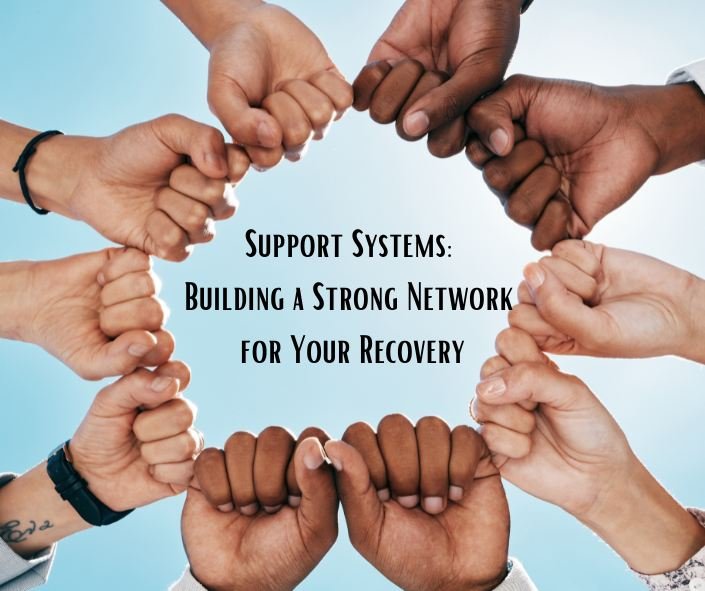Promoting a supportive workplace environment for employees in recovery from substance use disorders is not only compassionate but also contributes to their overall well-being and professional success. In Bangalore, forward-thinking companies are recognizing the importance of implementing strategies that foster a supportive culture for individuals navigating the challenges of recovery. This blog explores workplace strategies for supporting employees in recovery, with insights from rehabilitation centers in Bangalore.
Understanding the Impact of Substance Use on the Workplace:
Productivity and Performance:
Substance use can significantly impact an employee’s productivity and job performance. Individuals in recovery may face challenges in concentration, decision-making, and meeting deadlines. Understanding these challenges is crucial for employers in creating a supportive atmosphere that enables employees to thrive.
Workplace Culture and Stigma:
Workplace culture plays a pivotal role in an employee’s recovery journey. Stigmatization and discrimination can hinder an individual’s willingness to seek help or disclose their recovery status. Rehabilitation centers in Bangalore emphasize the importance of cultivating a culture of acceptance and understanding in the workplace.
Implementing Supportive Workplace Strategies:
Educational Initiatives:
Educational initiatives are key to creating awareness and understanding around addiction and recovery in the workplace. Companies in Bangalore can collaborate with rehabilitation centers to organize workshops, training sessions, and informational materials to educate employees and leaders about the challenges of substance use disorders and the importance of fostering a supportive environment.
Confidential Employee Assistance Programs (EAPs):
Implementing confidential Employee Assistance Programs is a vital step in supporting employees in recovery. Bangalore-based rehabilitation centers can collaborate with companies to establish EAPs that provide employees with confidential counseling, resources, and referrals to professional treatment services, fostering a culture of care and assistance.
Flexible Work Arrangements:
Telecommuting and Flexible Hours:
Offering telecommuting options and flexible work hours can be beneficial for employees in recovery. Rehabilitation centers in Bangalore acknowledge that flexibility in work arrangements allows individuals to attend counseling sessions, support group meetings, and medical appointments without compromising their professional responsibilities.
Gradual Return-to-Work Plans:
Gradual return-to-work plans can be implemented for employees returning after completing rehabilitation programs. These plans, developed in consultation with rehabilitation centers in Bangalore, provide a structured and supportive transition, gradually increasing workload as the employee becomes more acclimated to their professional responsibilities.
Employee Support Groups:
Peer-Led Support Initiatives:
Establishing peer-led support groups within the workplace can create a sense of community and connection for employees in recovery. Rehabilitation centers in Bangalore can provide guidance on setting up these groups, fostering an environment where individuals can share experiences, offer support, and exchange coping strategies.
Mental Health and Wellness Programs:
Integrating mental health and wellness programs into the workplace is essential for supporting employees in recovery. Bangalore-based rehabilitation centers can collaborate with companies to develop initiatives that focus on stress reduction, mindfulness, and overall mental well-being, contributing to a healthier and more supportive work environment.
Supervisor and Leadership Training:
Recognizing Signs of Struggle:
Training supervisors and leadership teams to recognize signs of struggle or distress is crucial. Rehabilitation centers in Bangalore can provide specialized training to equip leaders with the skills to approach sensitive conversations, identify potential issues, and offer support to employees in recovery without stigmatizing or marginalizing them.
Implementing Non-Punitive Policies:
Creating non-punitive policies that prioritize rehabilitation over punitive measures is essential. Collaborating with rehabilitation centers in Bangalore can assist companies in developing policies that emphasize support, treatment, and rehabilitation rather than punitive actions, fostering an environment that encourages individuals to seek help without fear of reprisal.
Promoting a Healthy Work-Life Balance:
Stress Reduction Programs:
Stress is a significant factor that can contribute to substance use and relapse. Implementing stress reduction programs, such as yoga or meditation sessions, in collaboration with rehabilitation centers in Bangalore, can help employees manage stress levels and maintain a healthy work-life balance.
Promoting Well-Being Initiatives:
Prioritizing employee well-being initiatives is a holistic approach to supporting recovery. Rehabilitation centers in Bangalore can work with companies to implement programs that focus on physical health, mental wellness, and work-life integration, contributing to the overall health and happiness of employees in recovery.
Addressing Relapse Prevention:
Post-Treatment Support Plans:
Collaborating with rehabilitation centers in Bangalore to develop post-treatment support plans is crucial. These plans can include ongoing counseling, access to support groups, and regular check-ins to help employees in recovery navigate the challenges they may face in maintaining their sobriety while managing work responsibilities.
Open Lines of Communication:
Creating open lines of communication is vital for addressing relapse prevention. Employers can encourage employees to communicate openly about their needs and challenges, fostering an environment where individuals feel comfortable seeking help or adjustments to support their ongoing recovery journey.
Legal and Ethical Considerations:
Legal Protections and Policies:
Companies in Bangalore should ensure that their policies align with legal protections for individuals in recovery. Collaborating with rehabilitation centers can assist employers in understanding legal requirements, protecting employees’ rights, and fostering a workplace that adheres to ethical treatment practices.
Non-Discrimination Policies:
Implementing and enforcing non-discrimination policies that explicitly include individuals in recovery is essential. Rehabilitation centers in Bangalore can provide guidance on developing and communicating these policies to create an inclusive and supportive workplace environment.
Supporting employees in recovery is an investment in both their well-being and the overall health of the workplace. In Bangalore, collaboration with rehabilitation centers enables companies to implement comprehensive strategies that foster understanding, provide practical support, and create an environment where individuals can thrive professionally while maintaining their commitment to recovery. By prioritizing the holistic well-being of employees, companies contribute to a culture of compassion, empathy, and resilience in the workplace.


